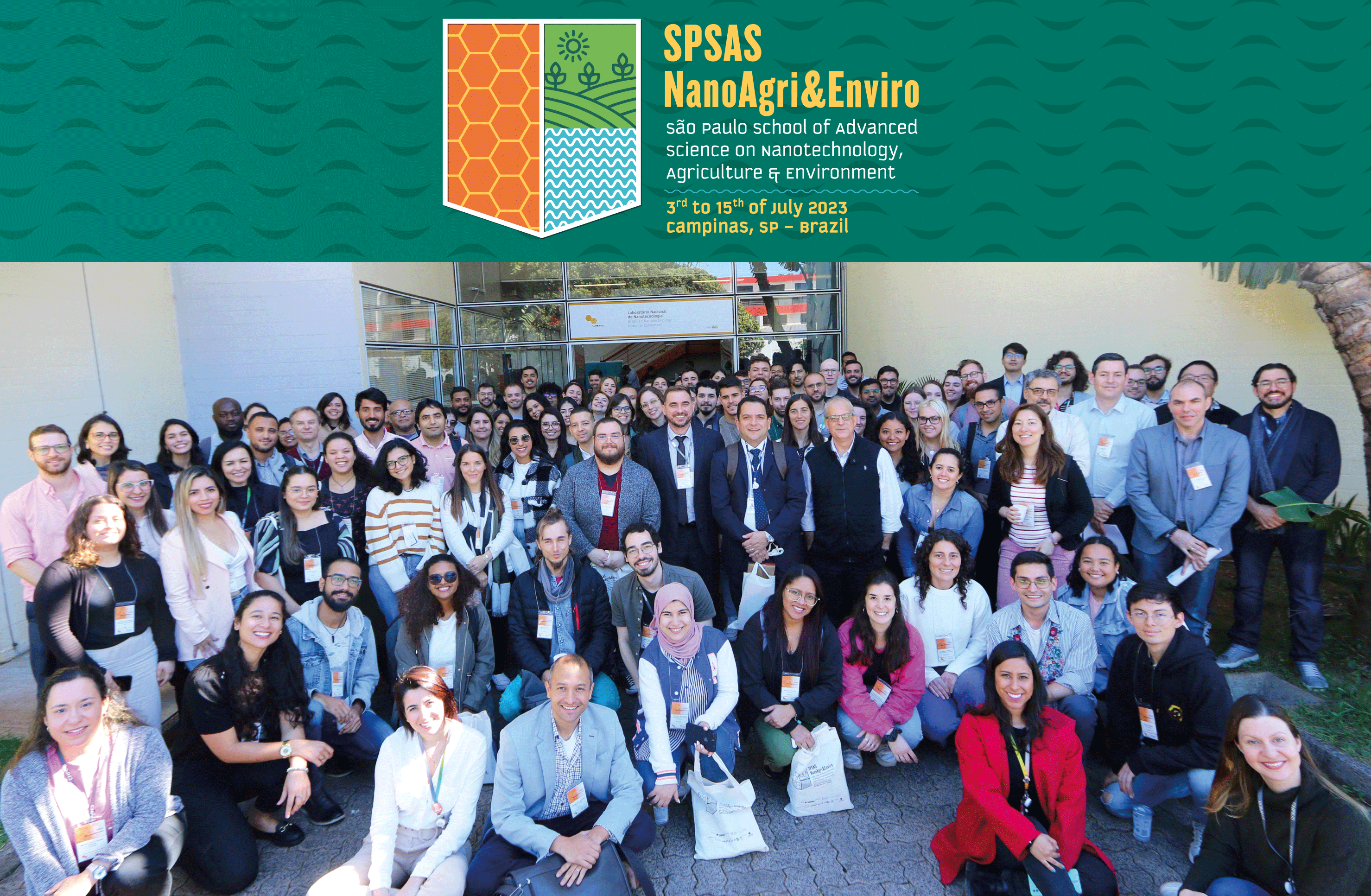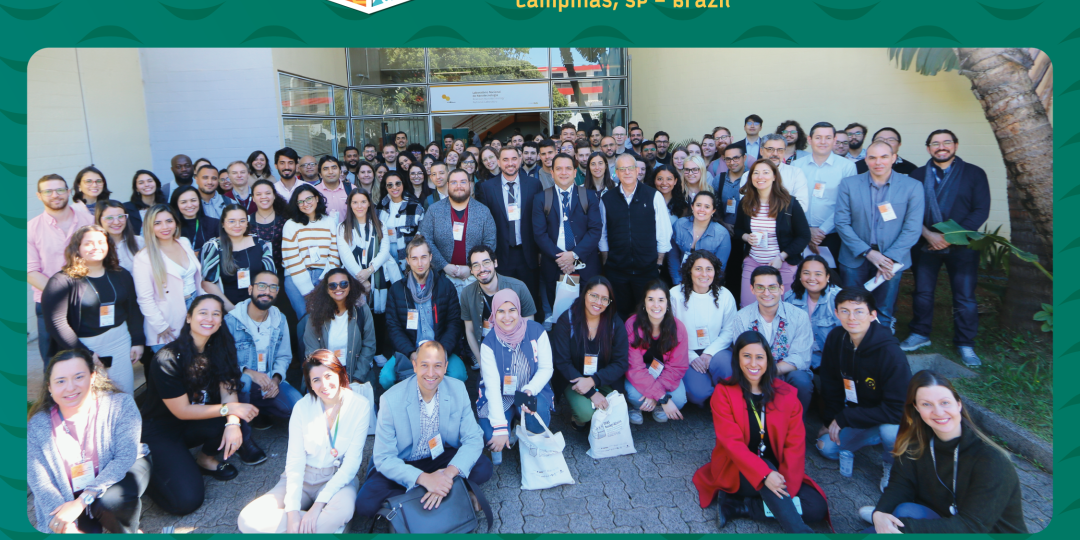

The Brazilian Center for Research in Energy and Materials (CNPEM) held the Sao Paulo School for Advanced Science in Nanotechnology, Agriculture, and the Environment, SPSAS NanoAgri&Enviro) from July 3 to 14, 2023. This event received funding from the São Paulo Research Foundation (FAPESP) and brought together approximately 90 participants from teaching and research institutions in 24 countries and speakers with solid experience, scientific leadership, and excellence in research on nanoscience, artificial intelligence, and agro-environmental issues.
Besides seminars and scientific presentations, the participants had access to hands-on experiments and technical visits to world-class facilities and specialized laboratories at important institutions in the state of São Paulo: the University of São Paulo (USP) in Piracicaba, São Paulo State University (UNESP) and the University of Sorocaba (UNISO) in Sorocaba, and the Federal University of São Carlos (UFSCar) and Brazilian Agricultural Research Corporation (EMBRAPA) in São Carlos.
The SPSAS model provides a multidisciplinary environment that encourages the exchange of experiences and integration of knowledge and innovation on topics that are globally important, like safe and sustainable application of nanotechnology and advanced materials, particularly in the areas of agriculture, nutrition, and the environment.
“The design of the program is really good, it is really broad in scope. I’ve learned so much about the applications of nanomaterials in agriculture, and also some of the synthesis and characterization methods of these nanomaterials, which I’ve seen at all the institutions we visited,” notes University of Birmingham researcher and SPSAS participant Taiwo Hassan Akere. Originally from Nigeria but now working in the United Kingdom, Akere was surprised by the open nature of the Brazilian facilities: “the biggest thing for me is to find that these facilities are open to the public, open to everyone around the world. It’s not something we are used to.”
Another participant, Patricia Santos Martins, Doctor of Public Law in Nanotechnology and Regulation from Vale do Rio dos Sinos University (UNISINOS), adds that she was looking for a new perspective within the topics addressed during the event. “The regulations I explore are one way that law perceives social and technological phenomena, and regulating the developer is done from inside this phenomenon outward,” she states. “Here I was able to immerse myself in nanotechnology, and the contact with researchers from various areas and institutions around the world was useful for us to understand the state of the art in this area.”
The participants (most of whom hold master’s or doctorate degrees or have already undertaken postdoctorate work) were selected from 360 applicants. The 42 foreign participants included strong representation from students and researchers in Latin American nations such as Argentina, Chile, Ecuador, Mexico, and Venezuela, as well as countries in Africa, the Middle East, and Europe including South Africa, Germany, Denmark, Spain, Greece, Jordan, Morocco, Pakistan, Poland, and the United Kingdom.
Diego Stéfani Teodoro Martinez, a CNPEM researcher who coordinated SPSAS NanoAgri&Enviro, described the unique experience of organizing the event: “Bringing together young talent and notable researchers to discuss topics on the cutting edge of knowledge is very gratifying. I believe this SPSAS will be very fruitful in terms of developing new materials and technology for sustainable innovation.”
About CNPEM
A sophisticated and ebullient environment for research and development that is the only one of its kind in Brazil and found in only a few scientific centers in the world, the Brazilian Center for Research in Energy and Materials (CNPEM) is a private, non-profit organization overseen by the Ministry of Science, Technology, and Innovation (MCTI). The Center operates four national laboratories and is home to Sirius, the most complex project in Brazilian science and one of the world’s most advanced synchrotron light sources. The CNPEM is home to highly specialized multi-thematic teams, globally competitive lab infrastructure that is open to the scientific community, strategic lines of research, innovative projects in partnerships with the productive sector, and training for researchers and students. The Center is an environment driven by research into solutions that impact the areas of health, energy and renewable materials, agri-environmental, and quantum technologies. Immersive virtual visits are available for all the laboratories in Campinas (SP), along with information about the work conducted there and the resources available to the scientific and business communities. In 2022, with support from the Brazilian Ministry of Education (MEC), the CNPEM expanded its activities with the opening of the Ilum School of Science. This interdisciplinary undergraduate program in science, technology, and innovation implements innovative ideas to provide a high quality free and full-time educational experience immersed in the research environment at the CNPEM.


